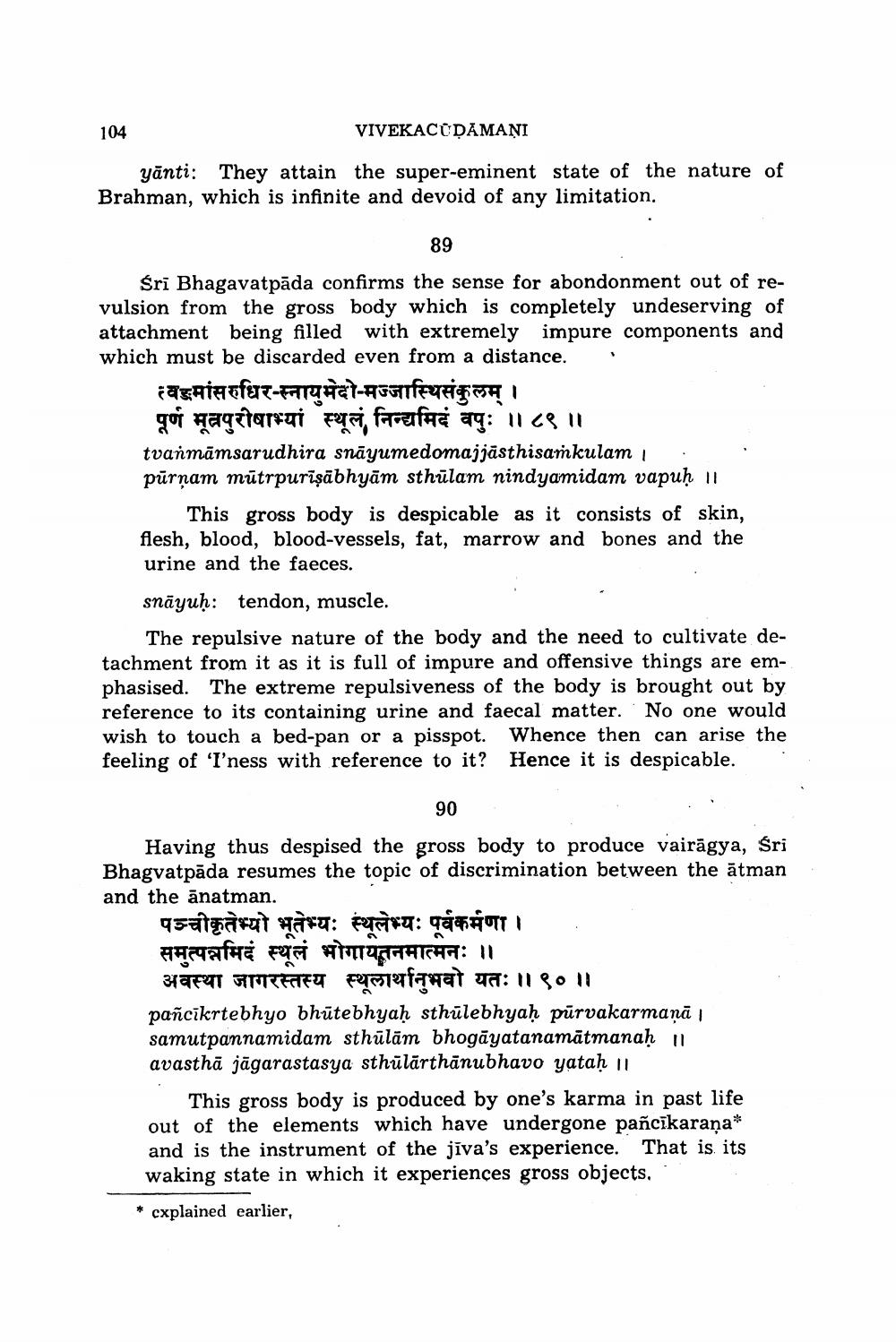________________
104
VIVEKACODAMAŅI
yānti: They attain the super-eminent state of the nature of Brahman, which is infinite and devoid of any limitation.
89
Śrī Bhagavatpāda confirms the sense for abondonment out of revulsion from the gross body which is completely undeserving of attachment being filled with extremely impure components and which must be discarded even from a distance.
त्वहुमांसरुधिर-स्नायुभेदो-मज्जास्थिसंकुलम् ।
पूर्ण मूत्रपुरीषाभ्यां स्थूलं निन्द्यमिदं वपुः ॥ ८९ ॥ tvanmāmsarudhira snäyumedomajjāsthisamkulami . pūrņam mūtrpurişābhyām sthulam nindyamidam vapuḥ 11
This gross body is despicable as it consists of skin, flesh, blood, blood-vessels, fat, marrow and bones and the urine and the faeces. snāyuḥ: tendon, muscle.
The repulsive nature of the body and the need to cultivate detachment from it as it is full of impure and offensive things are emphasised. The extreme repulsiveness of the body is brought out by reference to its containing urine and faecal matter. No one would wish to touch a bed-pan or a pisspot. Whence then can arise the feeling of 'I'ness with reference to it? Hence it is despicable.
90 Having thus despised the gross body to produce vairāgya, Sri Bhagvatpāda resumes the topic of discrimination between the ātman and the anatman.
पञ्चीकृतेभ्यो भूतेभ्यः स्थूलेभ्यः पूर्वकर्मणा । समुत्पन्नमिदं स्थूलं भोगायतनमात्मनः ॥ अवस्था जागरस्तस्य स्थूलार्थानुभवो यतः॥९०॥ pañcīkrtebhyo bhūtebhyah sthūlebhyaḥ pūrvakarmanā! samutpannamidam sthūlām bhogāyatanamātmanah in avasthā jāgarastasya sthūlārthānubhavo yataḥ 11
This gross body is produced by one's karma in past life out of the elements which have undergone pañcīkarana* and is the instrument of the jīva's experience. That is its waking state in which it experiences gross objects.
* explained earlier,




